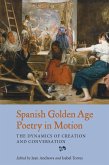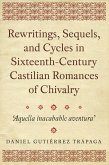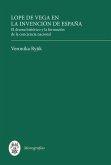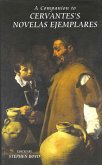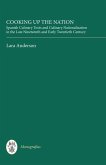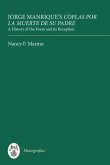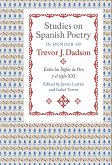Love poetry in the Spanish Golden Age redefines the lyric poetry that is located at the centre of Imperial Spanish culture's own self-image and self-definition.
This work engages with a broader evaluation of early modern poetics that foregrounds the processes rather than the products of thinking. The locus of the study is the Imperial 'home' space, where love poetry meets early modern empire at the inception of a very conflicted national consciousness, and where the vernacular language, Castilian, emerges in the encounter as a strategic site of national and imperial identity. The political is, therefore, a pervasive presence, teased out where relevant in recognition of the poet's sensitivity to the ideologies within which writing comes into being. But the primary commitment of the book is to lyric poetry, and to poets, individually and intheir dynamic interconnectedness. Moving beyond a re-evaluation of critical responses to four major poets of the period (Garcilaso de la Vega, Herrera, Góngora and Quevedo), this study disengages respectfully with the substantialbody of biographical research that continues to impact upon our understanding of the genre, and renegotiates the Foucauldian concept of the 'epistemic break', often associated with the anti-mimetic impulses of the Baroque. This more flexible model accommodates the multiperspectivism that interrogated Imperial ideology even in the earliest sixteenth-century poetry, and allows for the exploration of new horizons in interpretation.
Isabel Torres isProfessor of Spanish Golden Age Literature and Head of Spanish and Portuguese Studies at Queen's University, Belfast.
This work engages with a broader evaluation of early modern poetics that foregrounds the processes rather than the products of thinking. The locus of the study is the Imperial 'home' space, where love poetry meets early modern empire at the inception of a very conflicted national consciousness, and where the vernacular language, Castilian, emerges in the encounter as a strategic site of national and imperial identity. The political is, therefore, a pervasive presence, teased out where relevant in recognition of the poet's sensitivity to the ideologies within which writing comes into being. But the primary commitment of the book is to lyric poetry, and to poets, individually and intheir dynamic interconnectedness. Moving beyond a re-evaluation of critical responses to four major poets of the period (Garcilaso de la Vega, Herrera, Góngora and Quevedo), this study disengages respectfully with the substantialbody of biographical research that continues to impact upon our understanding of the genre, and renegotiates the Foucauldian concept of the 'epistemic break', often associated with the anti-mimetic impulses of the Baroque. This more flexible model accommodates the multiperspectivism that interrogated Imperial ideology even in the earliest sixteenth-century poetry, and allows for the exploration of new horizons in interpretation.
Isabel Torres isProfessor of Spanish Golden Age Literature and Head of Spanish and Portuguese Studies at Queen's University, Belfast.
Dieser Download kann aus rechtlichen Gründen nur mit Rechnungsadresse in A, D ausgeliefert werden.



